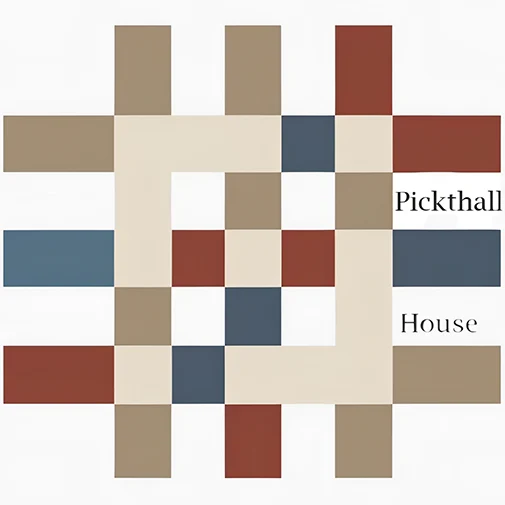Pickthall House believes that political discourse on the topic of national identity is very welcome. However, we strongly reject unsubstantiated allegations of disloyalty to Britain, or rejection of British values, levelled against citizens for their political beliefs. Pickthall House believes that most political opinions can legitimately be held without contravening these collectively held British values, and indeed that a discourse in which multiple opposing views are debated with civility is vital to maintaining them. The attempt to appropriate British values as uniquely associated with one side of an argument demonstrates a lack of understanding of what these values are.
This week, Nigel Farage appeared on Sky News claiming in reference to the pro-Palestinian marches and university encampments, that a large proportion of Britons do not believe in British values. He supported his argument by quoting a survey commissioned by the Henry Jackson Society of Muslim political beliefs, which revealed that almost half of British Muslims felt more sympathy for Hamas than Israel. Failing to acknowledge the leading nature of the questions in the survey, for example presenting a forced choice between Israel and Hamas (many respondents might have reluctantly chosen Hamas but felt little sympathy for either actor), Farage went on to say that the individuals marching in favour of Palestine “loathe much of what we stand for”, later clarifying that he was speaking specifically about Muslims.
Regardless of Farage’s interpretation of the protestors’ intentions, or his knowledge of the inner beliefs of Britain’s Muslim citizens more generally, to truly assess his claim, one must ask what are the common values that can be unambiguously identified as British?
Appeals to a common set of British values are deployed regularly in our political discourse, though with such variety of interpretation as to sometimes appear to render the concept entirely meaningless. The British value of tolerance has been emphasised by those leaning left, wishing to encourage multiculturalism, while the risk of the dilution, decay, or modification of British values, has served as a tool to discourage the same by those on the other side of the political divide. These values are supposedly the reason we have fought wars to promote our values elsewhere in the world, and also underpin the human rights institutions who condemn our military actions. One could therefore be excused for the belief that no such values truly exist, or that they play little role in governing Britain.
Rather than looking for British values in the world of political rhetoric, a messy, base world, which can obscure the fundamentally human aims it seeks to achieve, one can find them in Britain’s cultural legacy. Sir Cecil Spring Rice, an erudite diplomat and writer of the patriotic hymn ‘I Vow to Thee My Country’, gave a sense of what he considered to be fundamental British values. The hymn extolls the virtues of community, service to others, and kindness, and includes allusions to scripture; “her ways are ways of gentleness, and all her paths are peace”. Clearly all Britons, regardless of their personal religious beliefs or lack thereof, could agree that we have a shared desire for a country ruled in accordance with these virtues, which Spring Rice derived from his Christian faith, but which are also found in a diversity of religious traditions as well as in secular humanism. So, can we identify these values in Britain’s Muslim community, and does the community’s support for the Palestinian cause undermine its Britishness?
One can point to protests or political activism as alleged evidence of disharmony, especially when it conflicts with one’s own political leanings, as is clearly the case with Farage and the pro-Palestinian activists. However, peacefully using the levers of democracy to encourage adoption of policies that are of personal importance, or that a citizen considers important to the national interest, is not un-British — in fact it is arguably the most critically important British value.
The claims around the Muslim community’s disconnectedness from British values are sometimes attributed to the large minority ethnic proportion of the community, and sometimes to the values of the faith itself. In fact, three quarters of British Muslims, consider ‘British’ to be their only national identity. Furthermore, polling from Ipsos Mori in 2018 showed that “Muslims are more likely than the British public as a whole to say that their national identity is important to their sense of who they are (55% of Muslims say this, compared to 44% of all adults)”. Muslims are, if anything, more patriotic than average.
In terms of what Britons consider to be the best things about their nation today, Yougov reported that 62% of respondents in a poll selected the NHS, where Muslims represent 17% of all doctors who answered a question on religious affiliation and 10% of the overall workforce. Supporting Britain’s most popular institution in numbers beyond their proportionate representation in the country hardly seems incongruous with British values.
Muslims also donate more than four times more than the mean British adult in charitable donations – the average donated by a UK adult being £165 versus £708 for the average Muslim adult. Charitable donation is notably a religious obligation, zakat, but the sums contributed far exceed the minimum required for Muslims as part of zakat. The UK as one of the largest donors of international aid, both in nominal terms and per capita, is clearly a nation that values charity, and its Muslim population are completely aligned in this respect, precisely because of their religious faith.
So, when assessing fundamental British values of democratic political participation, community service, patriotism, and compassion, as well as the evidence of a strong sense of British national identity, it seems the Muslim community are closely aligned with these commitments. Despite the heated debate in the media on the issue, the claim that Muslims “loathe what we stand for” is not borne out by the objective, verifiable evidence. The claim could only be supported against a narrow set of acceptable beliefs reframed as British values. For example, much has been said by Farage about recent local elections in Muslim majority areas, in which right wing commentators have claimed Gaza was the main campaign. In fact, the two most important election issues to Muslims are the cost of living and the NHS (ironically this is revealed in the same survey Farage referenced); however, even if Gaza were the most important issue for Muslim voters, there has yet to be made a compelling argument as to why this should be considered incongruous with British values. One could only conclude that Farage must believe support for Israel’s war, in spite of the humanitarian consequences (which are the protestors’ professed reason for their actions), is a prerequisite for identifying as British.
War causes suffering, which in turn produces vigorous debate and heated conditions which can only be tempered by rational, sober discourse, rather than resorting to identity politics. Spring Rice’s hymn written in the aftermath of the First World War describes Britain’s fallen soldiers as “the dearest and the best”: it would be befitting to remember that among them were tens of thousands of Muslim soldiers whose faith never conflicted with their patriotic duty.


